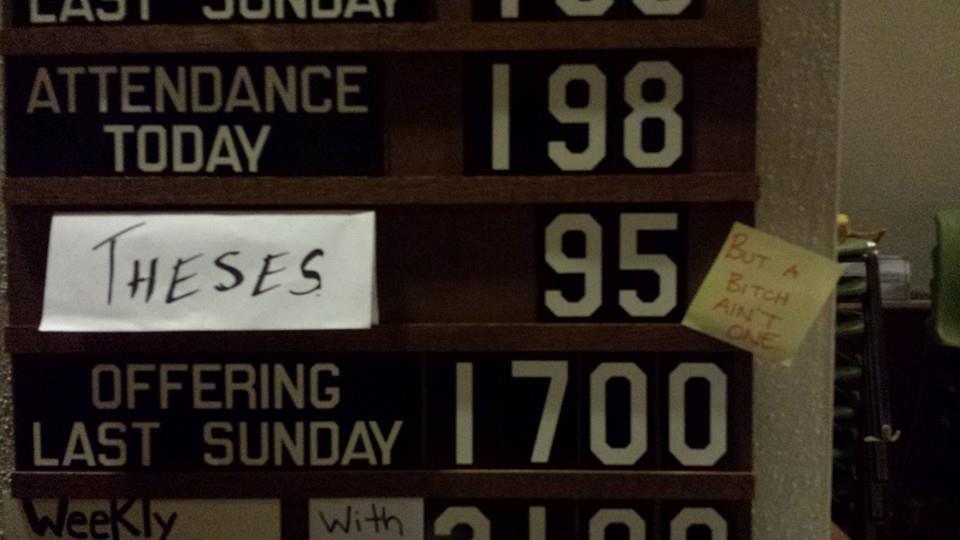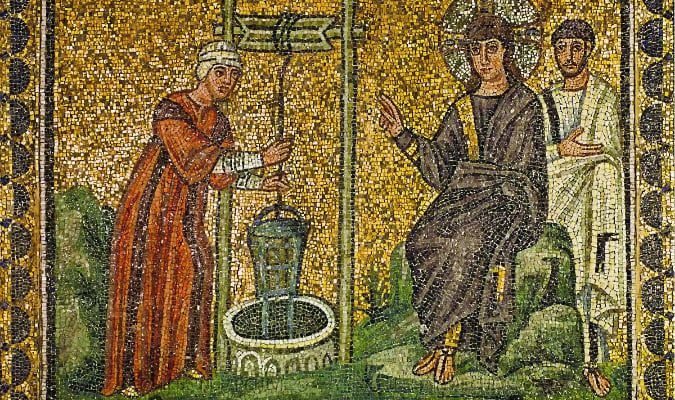
2013-10-27 NBW HFASS Sermon 2 <—– click here to listen along.
This week I began to think that Jesus’ teachings should really come with a warning label. Perhaps something like, Caution! Contents may cause extreme discomfort if actually ingested.
See, in our Gospel for today, Luke tells us that this parable was told to some who trusted in themselves that they were righteous and held others in contempt. The Pharisee in the story, a devout, tithe paying do-gooder – prays what can only be described as an EGO-cessory prayer, Thank you God that I am not like those people: adulterers, thieves, rogues, I fast twice a week, I give a tenth of my income to the church. Thank you that I am not like that filthy tax collector over there. Geez that guy is pathetic, don’t you think, God?
The Pharisee trusted in himself that he was righteous.
Typical.
If the Pharisees were around today…not the actual ones…I mean our stereotype of who the Pharisees were – priggish hypocritical religious leaders, don’t you think if they were around today they could get like, so much done on Facebook? I mean, think how Self-righteous they could be without even leaving their living rooms! They really were born at the wrong time, because I’m pretty sure Pharisees would love the hell out of Facebook.
And as someone who has often been held in contempt by those who trust in themselves that they are righteous I’ve recently found my tolerance for self-righteous comments on Facebook to be quickly dwindling. One more pious comment on my public Facebook page from some nice Christian who is “disappointed” in me for saying the bad words and I might just lose my you-know-what.
So, when I read that this parable was told to some who trusted in themselves that they were righteous and held others in contempt, who knew they were right because they could easily pick out the ones who were wrong in a spiritual line up I thought, “right on, Jesus, because man do I know those people!”
If you are paying attention, you might predict that this is exactly the point where that warning label about how ingesting Jesus’ teachings will cause extreme discomfort would have come in handy for me this week in a couple of ways
First, because let’s be honest. It’s takes a whole lot of self-righteousness to be that indignant about other people’s self-righteousness. So where Does that leave me now but to say “Lord, have mercy on me a sinner”?
Because honestly here’s an EGOcessory prayer that might be familiar: I thank you God that I am not like others: thieves, rouges, adulterers…people who don’t recycle. I thank you God, that I am not like those People who don’t sign up for jobs at church. Thank you that I always remember to bring my reusable grocery bags to Whole Foods, I have replaced all my incandescents with compact fluorescents and I have a rainbow flag sticker on my Prius. Thank you Jesus.
Well, THAT’S uncomfortable.
Especially if the other guy, the Tax Collector…the one who is a traitor to his people, the guy who is totally the one percent, who hordes wealth at the expense of others, the one who litters and tells racist jokes and buys over packaged goods and has gun racks and T & A mud flaps on his truck prays simply “God, have mercy on me a sinner”
As we know, the one who goes home justified is not the guy who bragged about doing everything right but the guy who was humble about doing everything wrong. So I guess that rather than the moral of the story being “try harder to be righteous”, the moral of the story is “try harder to be humble” right?
And there it is. Reason number 2 for why this parable should come with a warning label.
It is as though this parable is a trap and the bait for this trap is our desire to figure out the moral of the story. Because as soon as we reach for that delicious little one inch square piece of cheddar convinced the point of the parable is that to be really righteous, to be really good in the eyes of others and in the eyes of God is to be humble, then we find the jaws of this parable snap around us because the very next thing out of our mouths can only be: Thank you God that I am humble like the Tax collector and not a bragger like this Pharisee. Trapped.
Or in the words of Homer Simpson, D’uh!
Because the problem with always looking for the moral of the story in Jesus’ parables and especially in this parable: is that I start to assume the moral of the story will lead me to the virtue I can adopt to be righteous. And what is righteousness but movement from vice to virtue?
But the text says nothing of the tax collector moving from vice to virtue…the text mentions nothing of repentance or self-improvement. The text does nothing to uphold any of our cherished notions of who is righteous.
Which means that the parable Jesus tells of the Pharisee and the Tax collector is perhaps not a morality tale after all, but is meant to highlight the un-fair and totally baffling grace of a God who seems entirely unimpressed by our virtue. If there is some kind of promise here then it’s not that we can use our humility to become righteous before God, the promise is not in what the ones hearing the parable can do to become justified. The promise is in the one telling the parable….the promise for us is Christ. Meaning that, there is a solution to the problem of the Great Human Competition Extravaganza that we are continually engaged in. There is a solution to the endless one-up-mans ship that we are continually engaged in. There is a solution to self-righteousness but it’s not trying to be more humble. The solution was for God to be made flesh and walk among us, God’s own beloved bragging sinners. Because this changes everything. See, Jesus wasn’t a new Moses bringing a better law, or a new religion we’ll never live up to. Jesus isn’t just sitting in heaven waiting to see if we can pull off the impossible and then condemning us for our inevitable failure. Jesus subverts the entire paradigm because, if the Reformation brought us anything it is that this isn’t about a spiritual ladder in which we learn how to move from vice to virtue. This isn’t about moving from the vice of being a tax collector to the virtue of being righteous as we might think. But it’s also not about moving from the vice of being self-righteous to the virtue of being humble. This Christianity thing is not about moving from vice to virtue. If anything we move from virtue to Christ. This means that Christ and not ourselves is the source of our righteousness. The righteousness we do have is not our own, but that of a Merciful and gracious God who comes to us in vulnerability and suffering of all things. And the thing is….when our righteousness is not our own but is that of Christ, there is no extra credit to be obtained. There is no basis on which to compare ourselves to each other because what qualifies us to receive this grace is not our virtue, but our need. And we are all equal in our need.
It’s all pretty offensive really. The fact that God loves me as I am right now and not just as I could be if I only got everything right seems foolish. My ego holds out for a me-based solution that I can either boast about or despair in. But the solution isn’t me-shaped. It’s cruciform.
So in the end, humility is not a virtue that makes us righteous. But it’s not unimportant either, because humility is just admitting the truth of being human…humility is the naked state in which we stand before a righteous God who sees us as we are – sees every jealous inclination, every racist thought, every selfish desire every good deed done for the wrong reason and God sees all of it through the lens of the cross and says to us you are free. Free from all of it. No one is keeping score. You are already justified, You are already righteous. You are already God’s new creation.
So, brothers and sisters, You do stand in righteousness before your God, not due to your virtue, but due to the cross. Only a God who slips into skin taking on flesh in all it’s broken glory – only this God of foolish love who dies a scandalous death without even lifting a finger to condemn the enemy – only this God can love you where you are. Right now. Because in the world according to God that’s how things work. Tax Collectors are justified, the last are first the first are last, our virtues become vices and our need of all things, our need becomes our greatest asset. Amen.












